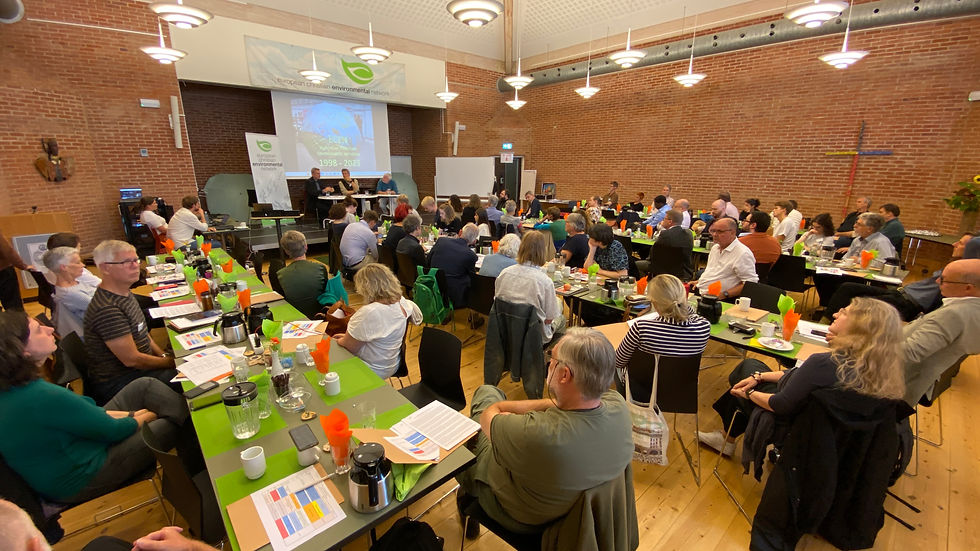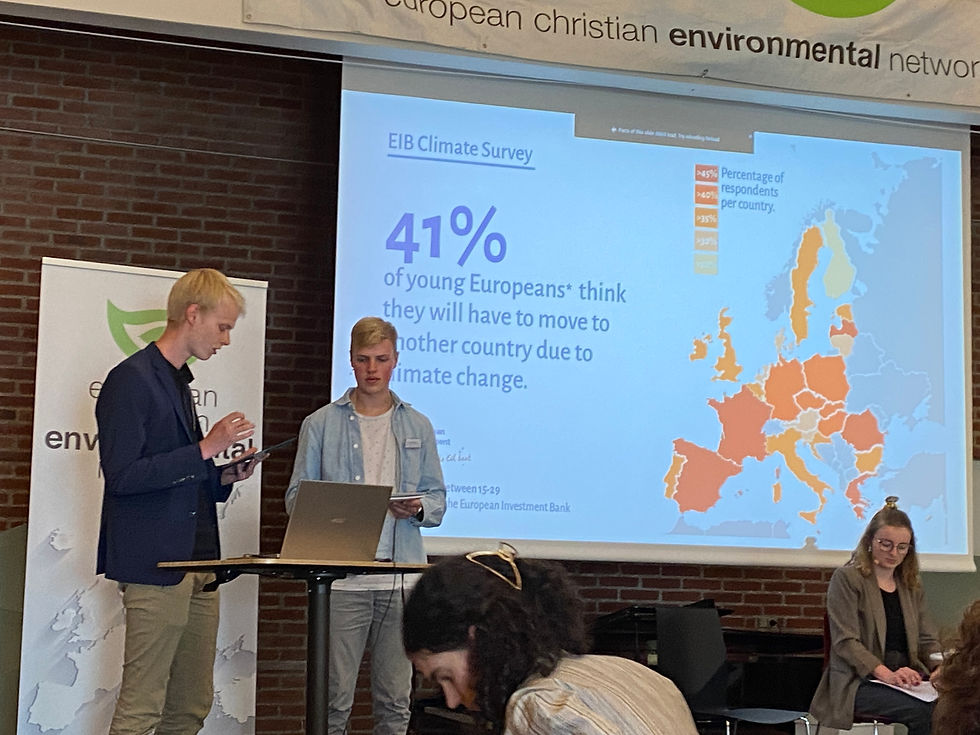Every Part of Creation Matters
- Helle Liht

- Sep 13, 2023
- 3 min read

“Every Part of Creation Matters” – this is the title of a recent publication of the Conference of European Churches (CEC). It was also the theme for the European Christian Environmental Network (ECEN) Assembly, this year gathering in Roskilde, Denmark from 31 August to 3 September and celebrating 25th anniversary of ECEN. I participated in it on behalf of EBF and share with you some of my reflections from this gathering.
ECEN brings together many inspiring stories and experiences
ECEN is a very useful platform for hearing, seeing and experiencing what is happening regarding care for creation in other churches across Europe. Our host this year, the Danish Green Church, presented their ecumenical organisation and the process for Danish churches to become a Green Church. The checklist of activities they have created offers congregations a good structure for becoming involved in creation care and taking further steps towards a sustainable future. In its simplicity, it can be easily re-created for different contexts and used for helping churches to respond to our current situation of increasing eco-crisis. In my opinion, the Danish Green Church is a great example of ecumenical cooperation and has a very practical outcome for local churches and their communities.
Caring for creation connects churches with their communities
During these couple of days, we visited the Roskilde Vineyard Church which is one of the Green Churches in Denmark. The church members have created a very stylish and welcoming physical environment from the materials which they have found in their neighbourhood recycling centres. Someone’s old floorboards are now covering the walls of the church, and sofas and tables in the cafeteria are created from old wooden pallets.
In the basement, the church has opened a “give-and-take shop” where people can bring things they don’t need, and others can take them for free. The shop is a simple recycling exercise, yet for the people in their community it has become a low-threshold entry to the church. There are many people who in addition to giving away the things they don’t need or finding the things they need but cannot afford, can also share their difficult life stories, find encouragement and often faith and new life in Christ. The church leaders emphasise the importance of wholistic mission for the world which includes caring for human beings as they are with the physical and spiritual needs as well as caring for the whole of God’s creation. Sitting in this church and listening to their stories I think of our throw-away culture and the harm it does to God’s good creation. Is it really so difficult to change it?

For younger generations, eco-crisis is very real and threatening
The representatives of the youth organisations highlighted several issues related to eco-crisis that many young people are struggling with in contemporary Europe – climate anxiety, depression, apathy, no will to marry and have children. They also reported that if the church doesn’t take the eco-crisis and its impact seriously, these young people who are concerned about their future and are looking for answers will not look to the church. This is especially challenging when we consider that the answers are there in our biblical theology. For an ageing and decreasing church, this is a message not to be discarded.

Caring for creation unites different churches and strengthens Christian witness in our societies
At the Assembly, it was mentioned several times that churches of different denominations who have joined their voices to advocate for good and just practices and act together to care for creation, build a stronger Christian witness in their societies. The joint Call from the Assembly conveys the same message, “[r]eminding us that we have a role as Christians with a commitment to care for our planet, to be embedded in practical and relational ways, in our churches and localities and to shine, show and share good ideas and to influence our wider society for good.”
ECEN Assembly brought together over 80 participants from different churches from 25 countries and its materials are available here. My hope is that in the future, there will be more Baptist churches and unions participating in this network, sharing their experiences, and learning from others. Every part of creation matters, and the church response matters, too.



Comments